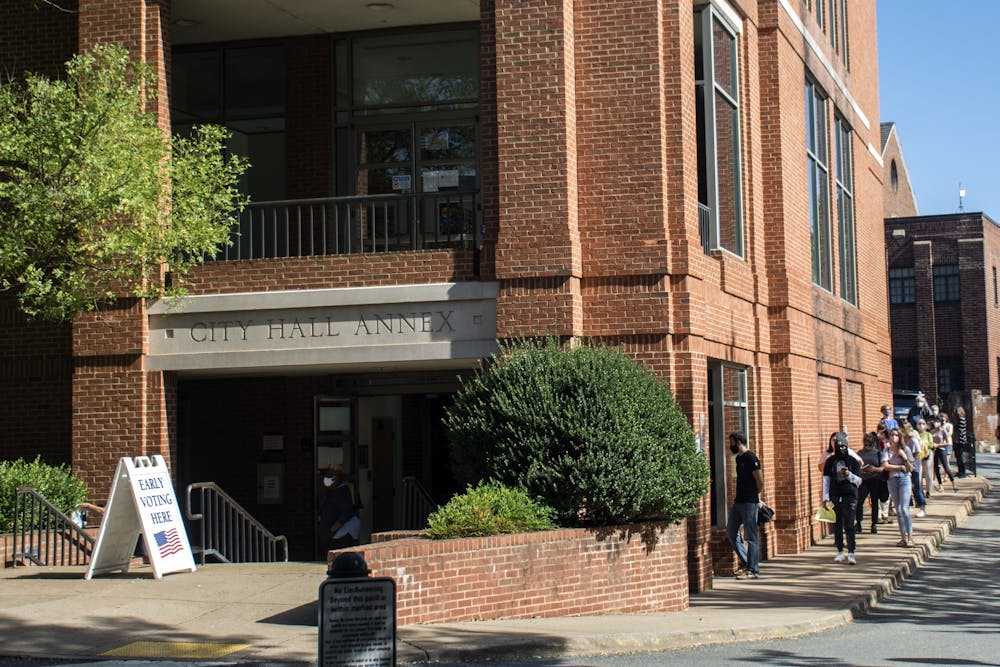Every election, millions of Americans make the effort to vote — but millions of Americans also stay home and neglect to exercise their most fundamental political right. In years with a presidential election, usually around 50 to 60 percent of the electorate votes. In 2016, for example, the U.S. had 58.1 percent of its eligible voters turn out — the lowest turnout of any of the countries within the Organisation for Economic Co-operation and Development. America is the oldest democracy in the world — a country which was uniquely founded on the principle of rule by the people — and yet it consistently fails to measure up to its peers.
People are generally aware that low voter turnout exists, and many consider it a problem. However, the vast majority of Americans do not support what would unquestionably be the most effective way of combating it — mandatory voting.
Currently, there are a total of 22 countries with mandatory voting, including Mexico, Brazil, Australia and Egypt. The U.S. should join these countries by implementing a mandatory voting system in which citizens would receive a small fee for failing to turn in a ballot. Doing so would make voter turnout skyrocket, force politicians to be accountable to the interests of everyone, end the racially and socioeconomically disproportionate allotment of non-voters and uproot the centuries-long American tradition of voter suppression.
Inevitably, mandatory voting would increase voter turnout, but not everyone agrees that that is actually a good thing. Many push back on the idea of mandatory voting because it would increase the amount of uneducated voters in the election, which would increase the amount of uninformed or bad votes. People also argue that mandatory voting forces people to express support for candidates that they do not approve of. Some go so far as to say that it violates the First Amendment because it compels speech in the form of voting.
These criticisms are sound, but they actually misunderstand what mandatory voting can be. Mandatory voting is actually somewhat of a misnomer because all that would technically be required is that everyone turn in a ballot. That ballot could be entirely filled out, partially filled out or even left empty. Mandatory voting in this sense is not requiring people to choose between options they might not know anything about, but rather requiring them to look through the options and at the very least indicate that they have no opinion. The uninformed vote criticism does not apply here because those who deem themselves too uninformed to vote could simply turn in a blank ballot. Also, those who conclude that none of the candidates for a certain position are worthy of a vote would not have to vote for anyone.
The point of this type of mandatory voting is not to increase the number of baseless votes — the point is to ensure that politicians no longer try to win elections by simply keeping people from voting. Politicians today often rely on the fact that certain demographics are less likely to vote, and sometimes deliberate measures are taken to suppress the vote of certain communities. If voting was mandatory, this would be impossible. Politicians would thus be forced to appeal to everyone, not just the rich, white, old people that vote the most. Often, it is those who don’t vote that are most in need of systemic change, and the fact that politicians rely on this to deny the country of needed change is a shame.
Mandatory voting may sound scary, but what is much scarier is the current state of American democracy. In 2016, there were more people who did not vote than those that voted for the president. Low voter turnout calls into question the legitimacy of our democracy — after all, the president is represented by less than 30 percent of the total electorate — which is something that we should all care about. America was founded on the promise of democracy, but that promise was one that originally came with the caveat that your vote only matters if you are white, male and own property. It was not until 1964 that America could honestly call itself a real democracy, and even after that, the continuance of voter suppression called that claim into question. Mandatory voting would fully resolve this problem, serving as the final battle in ensuring that America lives up to its democratic ideals.
Sam Mattingly is a Viewpoint Writer for The Cavalier Daily. He can be reached at opinion@cavalierdaily.com.
The opinions expressed in this column are not necessarily those of The Cavalier Daily. Columns represent the views of the authors alone.







